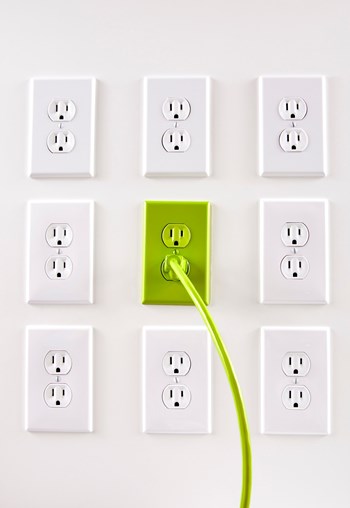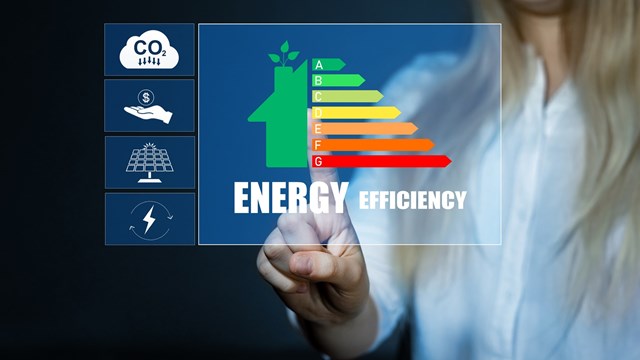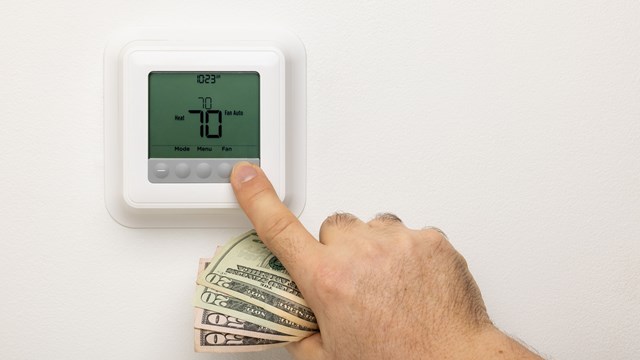
Every day, New Jersey communities produce hundreds of tons of trash—household trash, industrial waste, old appliances, broken-down furniture—and the numbers are growing. Each year between 1985 and 2003, the amount of total solid waste generated within the state rose by four percent.
Once it's carted away—usually by truck—people don't think much about their garbage or what happens to it. However, the issue doesn't always end there. In some urban neighborhoods, the parade of one noisy garbage truck after another angers residents. In some suburban and rural areas, local officials agitate for the closing of landfills, which attract vermin and create an unpleasant atmosphere. And everywhere, people are uneasy about living near recycling or waste treatment facilities, even if those facilities have the latest, "clean" technologies.
A Land of Landfills
In the past, New Jersey's garbage was routinely taken to landfills. According to the section on the new Statewide Solid Waste Management Plan in the state Department of Environmental Protection's website, which can be found at www.state.nj.us/dep/dshw, "There are approximately 600 known [current and former] landfills in the state."
Most of these landfills predated environmental regulations, so many contain hazardous wastes. More than half had already closed by the mid-1980s—some because of unsafe materials, others because they had just run out of space.
With the growing awareness of the environment in the 1970s and the phasing-out of the landfill system, something had to be done. New Jersey adopted the Solid Waste Management Act (SWMA) which established a regulatory framework for the implementation of environmental standards for solid waste management. The SWMA was amended in 1975 to establish the current solid waste management planning process. The 1975 amendments assigned primary planning responsibilities, subject to detailed state level review and approval, to 22 solid waste management districts. By 1990, 13 new facilities had been built with public funds, and many more followed.
Although some landfills are still operating, for the most part, their function has been replaced by waste transfer stations for typical household and commercial waste, as well as "Class B" and "Class C" recycling centers, which recycle a wide variety of materials, from cardboard and paper to bottles and cans to dead leaves. Recycling has been mandatory in New Jersey for more than 20 years.
Larry Gindoff, the program administrator for the Morris County Utilities Authority, says, "In Morris County, towns bring their garbage to one of the two transfer stations that the county operates, one in Parsippany, in the eastern part of Morris County, the other, for the western part of the county, in Mount Olive.
"You really have three different systems in Morris County for collecting garbage," he continues. "Some towns use their own employees. Some larger municipalities go out to contract to hire a private collector or [carting company.] And some towns don't do anything—they leave collecting garbage up to individual homeowners."
Multifamily Methods
In co-ops and condos, as well as rental apartment buildings, residents usually take garbage and trash to a central location, where it is then picked up, according to Marie Kruzan, executive director of the Association of New Jersey Recyclers. Actually, the buildings must have two collection points, even if they're right next to each other—one for garbage as such, the other for recyclables.
Sometimes, the same hauler will take both the recyclables and the trash. Other times, the town itself provides for the recyclables to be picked up, says Kruzan. While most town pick up trash and recyclables once a week, condos and other apartment buildings typically want to have them picked up more than once a week—and many will pay extra for the additional service.
What happens to trash after the waste transfer station gets through with it "depends on what the transfer station has a contract to do," says Nancy Walby, a recycling expert. Walby is co-chair of the SWAB (Solid Waste Advisory Board) in Brooklyn, New York but has lived in many states across the country and studied the problem of garbage and recycling since the early 1990s. "They load it and put it onto trucks or rail cars to then carry the trash to its final destination."
In Morris County, for example, trash that ends up at the two transfer stations is trucked to out-of-state landfills, including several in Pennsylvania. As strange as it may seem to some people, these out-of-state landfills actually like household garbage, and make a profit out of dealing with it. In some other places, says Walby, trash can go to a waste-to-energy facility, which is similar to an incinerator, except for the fact that the heat is used to run generators.
As for recyclables, recycling plants are more intensive than waste transfer stations, which for the most part just transfer the garbage from one venue to another. "At recycling plants, materials are processed into two streams, one paper and cardboard, the other bottles and cans," says Kruzan.
"People separate them into components, package them, in some instances bale them or crush them," Kruzan continues. Then, she says, the recyclables are taken to industrial facilities where there's a market for them.
"Paper can be taken to paper mills, cans and bottles can be melted down and re-used," she adds. By the way, individual towns can add even more materials that must be recycled.
Siting Issues
Morris County's two garbage processing facilities, says Gindoff, are "nicely located off of major highways. The garbage comes and goes." But what happens if someone wants to open up a new plant in a highly populated area—for example, Hudson County?
Karen Hershey, a spokeswoman for the state DEP says, "Impact issues are taken up during the permitting phase. New Jersey has some of the most stringent, community-protective requirements in the country."
As abatement measures, the state has requirements for odor and dust management procedures, as well as scheduled inspections of waste-handling procedures. It also recommends such measures as "water misting," or wetting down garbage before it is off-loaded, to prevent particulates from becoming airborne.
Although many condos and co-ops will surely complain about particular waste transfer or recycling facilities near their developments, Ms. Walby says that in general, the facilities "like to be good neighbors. The people running the transfer station are not looking to make any problems. "
Still, she adds, the impact a station has on its surrounding environs depends on the size of the station, the volume of materials it collects, how many trucks go in and out, and how often it operates. That's why towns can limit the hours during which the trucks can come and go.
What if an operator wants to open a new waste transfer station or recycling plant? It's extremely difficult and can take years, says Lynn Rubenstein, executive director of the Northeast Recycling Council, which monitors 10 states—including New Jersey. The plant must deal with both local zoning issues and state permitting requirements, and the local health department frequently gets involved as well.
Some people living near these facilities dislike the mere appearance of some of them, which they find unattractive. "Those are the main concerns I hear—trucks and [they're] ugly," Walby says.
Some Legislative Issues
According to the DEP, during the last eight years, the department's Solid Waste Enforcement Program has shifted a significant percentage of its routine inspection resources from solid waste facilities (landfills, transfer stations and incinerators) to recycling centers. This is done largely because of the increasing number of recycling centers opening up. Currently, the DEP's Solid Waste Enforcement Program inspects both types of facilities on a monthly basis.
The DEP, concerned with an apparent decline in the state's recycling rate, is also inspecting transfer stations more frequently to determine how often recyclables are just thrown in with the trash, in violation of regulations. To the same effort, the state has circulated "recycling checklists."
In Hudson County, in particular, the state did a countywide "recycling sweep" last year. Some 1,223 facilities were inspected, from hotels and motels to insurance brokers' offices. Happily, in the apartment-building sector (which of course includes co-ops and condos), only five percent were not recycling—as opposed to 26 percent of elementary schools, to name one other example.
What's In the Future?
What's in the future for garbage disposal and waste processing?
"There may be more of a focus on the use of transporting garbage long-haul by train," says Gindoff. "It hasn't done much yet, but with gas prices going up and up, it wouldn't surprise me." This, he said, would still involve trucking the trash out of the transfer stations, but the trucks would then take containerized trash, already loaded at the county's facilities, to an intermodal facility. The sealed containers would just be lifted off the trucks and onto the trains—similar to the way cargo containers from ships are off-loaded at ports.
Walby says, "I've heard about burners that are not incinerators, not waste-to-energy facilities, and not so-called open-furnace 'gasification.' They basically burn the trash at a much higher temperature [as much as 8,000 degrees Fahrenheit], really limiting the amount of oxygen used in the process and more completely burning the trash, giving more energy or heat to fuel and generator."
"The process' name depends on who you talk to," says Walby, who has seen several presentations by companies who manufacture the technology. "Gasification is one name, plasma technology is another."
Indeed, air coming out of a plasma gasifier is lower in trace contaminants than with any kind of incinerator or other gasifier. However, a look at environmental advocacy sites on the web shows that "green" organizations believe that many of the pollution problems caused by regular incinerators or waste-to-energy facilities still exist with this new type of technology.
Many prefer composting instead. In Europe, says Rubenstein, "co-composting" mixes garbage with organic materials. However, she adds, that technology hasn't been introduced in the U.S. yet.
Hopefully, with more information about the process by which our waste and trash is taken away and managed, we as consumers will have a little more respect for those who process our trash—as well as those who make the laws protecting the public from unsafe waste management processes and those who enforce them. When it comes to garbage, it may be out of sight, but it is never compltely out of mind.
Raanan Geberer is a freelance writer living in New York City.






Leave a Comment